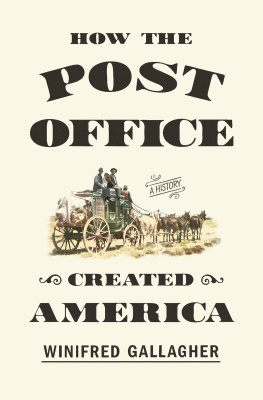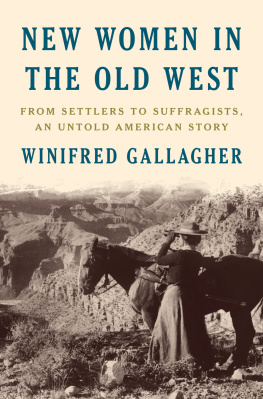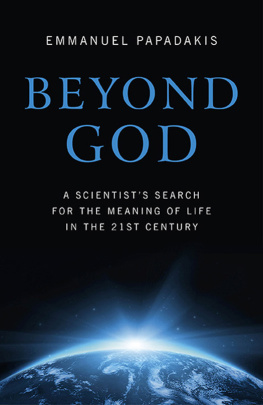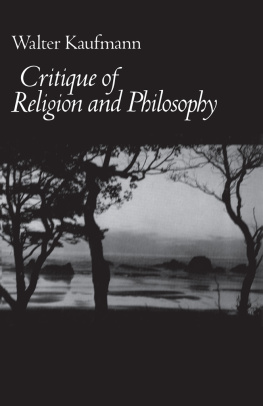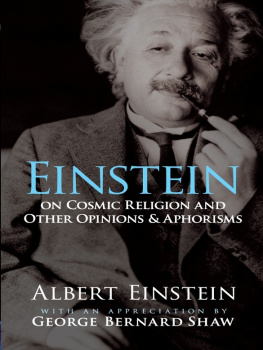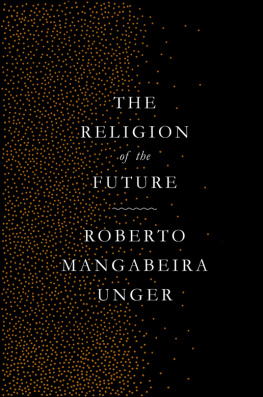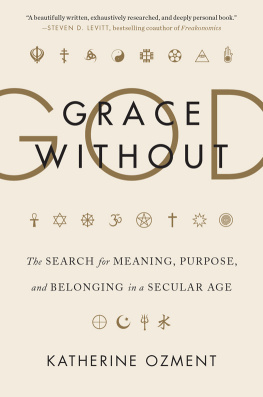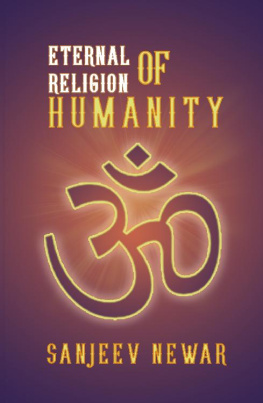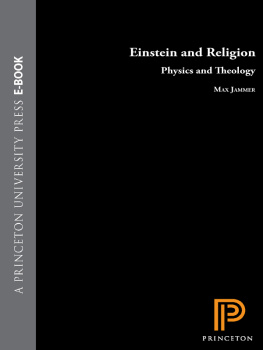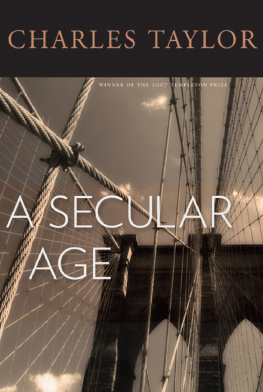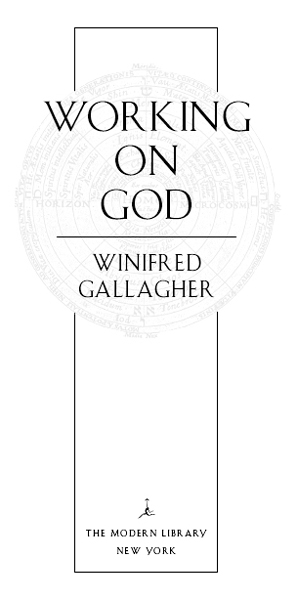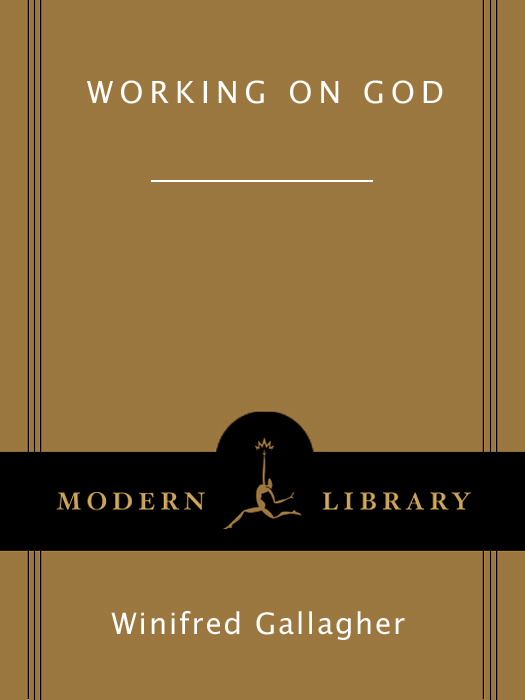
Rich and intelligent . Winifred Gallagher, a New Yorkbased writer struggling to find her own spiritual niche, leads us on an intimate and revealing pilgrimage into Americas restless soul. The result is an honest and sometimes poignant appraisal of a religious revolution afoot in this country . An outstanding piece of writing that shows the strength and beauty of Americas beating religious heart.
The Boston Globe
[Gallagher is] smart, shes curious, and she has spoken with everybody . Her points on the new ecumenism are well-stated and valuable.
San Jose Mercury News
Gallaghers honesty and integrity will resonate with those who can acknowledge a resurrection experience but who cant quite profess the Resurrection.
Publishers Weekly
Gallaghers book is literate and intelligent, the work of a serious scholar-journalist.
Toronto Globe and Mail
Shes written my book! exclaimed a friend upon first seeing Winifred Gallaghers Working on God. I, too, felt waves of recognition as I turned the pages of this extensive exploration of American spirituality at a crossroads. Gallagher is writing for all the people, like my friend and me, who fit into the steadily growing category of what Gallagher calls well-educated skeptics who have inexplicable metaphysical feelings. If you are looking to explore some of those seemingly inexplicable metaphysical feelings, read Working on God. Gallagher has written your book.
New Age
Gallaghers book offers an important framework in which to look at the changes in spiritual practice today.
Denver Rocky Mountain News
A journey of discovery through three faithsJudaism, Christianity, and Zen Buddhismand through New Age communities such as Esalen in Northern California. The result is a very American travelogue . Some of Gallaghers experiences are quite touching. Her prose is simple, direct and unadorned, much like Zen meditation is supposed to be.
Los Angeles Times
ALSO BY WINIFRED GALLAGHER
Just the Way You Are: How Heredity and Experience
Create the Individual
(originally published as I.D.: How Heredity and Experience
Make You Who You Are)
The Power of Place: How Our Surroundings Shape
Our Thoughts, Emotions, and Actions
2000 Modern Library Paperback Edition
Copyright 1999 by Winifred Gallagher
All rights reserved under International and Pan-American Copyright Conventions. Published in the United States by Random House, Inc., New York, and simultaneously in Canada by Random House of Canada Limited, Toronto.
M ODERN L IBRARY and colophon are registered trademarks of Random House, Inc.
Originally published in hardcover by Random House, Inc., in 1999.
Grateful acknowledgment is made to New Directions Publishing Corporation and Laurence Pollinger Limited for permission to reprint thirteen lines from On Being from Oblique Prayers, published in Great Britian by Bloodaxe Books and in the United States by New Directions Publishing Corporation. Copyright 1984 by Denise Levertov. Rights in the British Commonwealth are controlled by Laurence Pollinger Limited, London. Reprinted by permission of New Directions Publishing Corporation and Laurence Pollinger Limited.
Library of Congress Cataloging-in-Publication Data
eISBN: 978-0-307-76636-6
Modern Library website address: www.modernlibrary.com
v3.1
For Winifred McCann and
Thomas Gallagher
All the way to heaven is heaven.
C ATHERINE OF S IENA
CONTENTS

INTRODUCTION

This is a book for people who arent sure about religion. These neoagnostics are well-educated skeptics who have inexplicable metaphysical feelings. They regard religion as belief in the unbelievable. Yet they sense something important that eludes their most trusted tools of intellect and learning. Defined by ambivalence and longing, their credos are various: There may be something, perhaps, or Im spiritual, not religious. Neoagnostics are Americas most subdued, neglected religious group, yet they are one of its most powerful. They are everywhere, especially at the top.
Religion starts with a question about meaning. Whats true? What matters? Why is there something instead of nothing? Is this all there is? Who am I? What should I do? Sometimes the question presents itself as rainy-Sunday-afternoon existential blues. A fear of death. A shadow or hole in a fortunate life. Unlike believers, neoagnostics dont have a ready answer to the question. Unlike atheists, however, they cant help hearing in it the possibility of something else.
I tried to answer, or at least muffle, the question in all the obvious wayslove, achievement, stuff, therapy. The question always returned, tantalizing me with hints of an answer or a glimpse of someone who seemed to know it. I looked for an answer in nature, then art. I tried science, writing two books about why our lives are the way they are. But I got no closer to understanding what they mean. By late adolescence, I had dismissed religion as anachronistic wish fulfillmenthalf Brothers Grimm, half Hallmark, dreadful at worst and limited at bestthat failed to jibe with my accumulating knowledge and experience. By middle age, I wearily recognized it as the only road not taken in my pursuit of the question.
This notion, like any serious expression of interest in religion, can attract odd looks in my urban professional world. Modern Americas brightest and best have long been encouraged to disparage the question and to think of churches and temples as places where ones brains are checked at the door. Some are atheists or true agnostics, whove concluded that even if God exists, which cant be proved, God cant be known. When combined, however, these two groups number fewer than 5 percent of Americans. To their right, but well to the left of traditional believers, sits the much bigger, fuzzier group of neoagnostics. If one listens carefully, one can hear them testify, sort of.
One night, I brought up God at a dinner party. Five years before, or even three, this would have elicited a brief silence and averted gazes. But my seven guests plunged into a discussion that lasted the rest of the evening. Like me, they enjoy the unprecedented benefits of the turn-of-the-millennium American bourgeoisie and yet take for granted situations that until recently were considered crises. Just as Im the first person in my family to be what my father calls a career gal, Im also the first to be divorced, a single working mother, a partner in a mixed marriage, and a number of other firsts best left veiled. Living in a time when change itself has become the only constant, my friends and I have stared into chasms opened by family fractures and professional upheavals, depressions and addictions. We wish there were something better than psychotherapy to help us make a big picture out of our lives mass of details, some of them gory. Superconsumers, were sickened by relentless materialism. Superachievers, were repelled by blind ambition and workaholism. Rugged individuals, we feel a low-grade alienation. From the publisher recovering from cancer who was seeing a healer to the college professor who worried about his pagan childrens moral education to the journalist who was suddenly becoming more interested in his Jewish half, each person at the table spoke of something lacking in a life more privileged than peaceful, something that seemed to be, to paraphrase the ubiquitous expression, spiritual, if not religious.


